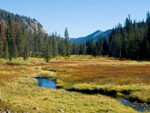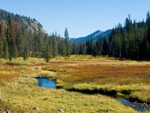
10 Sustainability Drivers over the Last 40 Years
 Stantec, a sustainable consulting and design firm, recently selected 10 defining moments that have advanced sustainability. The list, compiled and evaluated by company environmental engineers, scientists, buildings experts and certified sustainability consultants, outlines the top moments, accomplishments, and thresholds that have most positively impacted society’s ongoing progression in sustainability.
Stantec, a sustainable consulting and design firm, recently selected 10 defining moments that have advanced sustainability. The list, compiled and evaluated by company environmental engineers, scientists, buildings experts and certified sustainability consultants, outlines the top moments, accomplishments, and thresholds that have most positively impacted society’s ongoing progression in sustainability.
In chronological order, they are:
1970: The Year for Sustainability – This year served as a foundation for the modern sustainability movement in several respects, beginning with the inception of the first Earth Day observance. Additionally, 1970 brought the strengthening of The U.S. Clean Air Act (i.e. “the Muskie Law”), the nation’s first environmental law that authorized state and federal regulations to limit emissions from stationary and mobile sources and eventually banned the use of leaded gasoline.
1971: Iconic “Crying Native American” PSA Advertisement – Launched on Earth Day, 1971, the image of freeway litter being tossed at the feet of a tearful Native American (played by actor Iron Eyes Cody), left the public inspired during what many consider the beginning of the modern environmental movement. The public service announcement was a product of the Keep America Beautiful campaign.
1972: Clean Water Act – Drawn from the Federal Water Pollution Control Amendments of 1972, this monumental piece of legislation created a series of goals to eliminate the release of several toxic substances into streams, rivers, lakes, oceans, and wetlands.
1987: Montreal Protocol – A protocol to the Vienna Convention for the Protection of the Ozone Layer, this international treaty – opened for signature this year – was designed to protect the ozone layer by phasing out the production of a number of substances – such as chlorofluorocarbons in aerosol sprays – believed to be responsible for ozone depletion.
1987: Our Common Future was published – Many contend that this is one of the single-most important events in the development of sustainability, as this document from the World Commission on Environment and Development officially defined sustainable development as, “development that meets the needs of the present without compromising the ability of future generations to meet their own needs.”
1989: World Wide Web Concept Introduced – English engineer and computer scientist Sir Tim Berners Lee, who now directs the World Wide Web Consortium, wrote a proposal in March 1989 that included concepts serving as the basis for the World Wide Web. Now a societal hub for interpersonal communication, the Web allows for seemingly endless information sharing possibilities to promote sustainable living/working practices while dramatically reducing the use of natural resources, namely paper products.
1993: Building Green: A Certified Practice Begins – The creation of the U.S. Green Building Council this year – now the pre-eminent authority on sustainable building – paved the way for the Canadian Green Building Council, the World Green Building Council and, most importantly, the Leadership in Energy and Environmental Design (LEED) certification, which now serves as the sustainability gold standard in certifying buildings and professionals.
2000: Global Sustainability Reporting Becomes Reality – From foundations earlier laid by organizations such as Ceres, the creation of the Global Reporting Initiative and The Carbon Disclosure Project provided the global community with measurable networks and reporting on the impact of environmental issues and practices from the corporate community.
2005: Kyoto Protocol Comes Into Force – Attached to the United Nations Framework on Climate Change, this environmental treaty is widely credited with initiating unprecedented discussions between global leaders on carbon footprints, as it was placed into action with the goal of achieving "stabilization of greenhouse gas concentrations in the atmosphere.”
2007: Al Gore Awarded Nobel Peace Prize – In the wake of Gore’s reception of this award, global awareness for issues related to climate change and general “green” philosophies reached new levels. Sustainability earned its niche as a commonplace term, as evidenced by the Oxford English Dictionary, which accepted the phrase “carbon footprint” that same year as an established part of the English vernacular.
“As the world continues to evolve, such that the ethos of sustainability goes from theoretical to inevitable, we as a sustainability-minded company, draw tremendous inspiration from the progress the world has seen during the past four decades,” said Marty Janowitz, vice president of Sustainable Development for Stantec and contributor to the list. “We look forward to being a part of the next 40 years of innovation.”